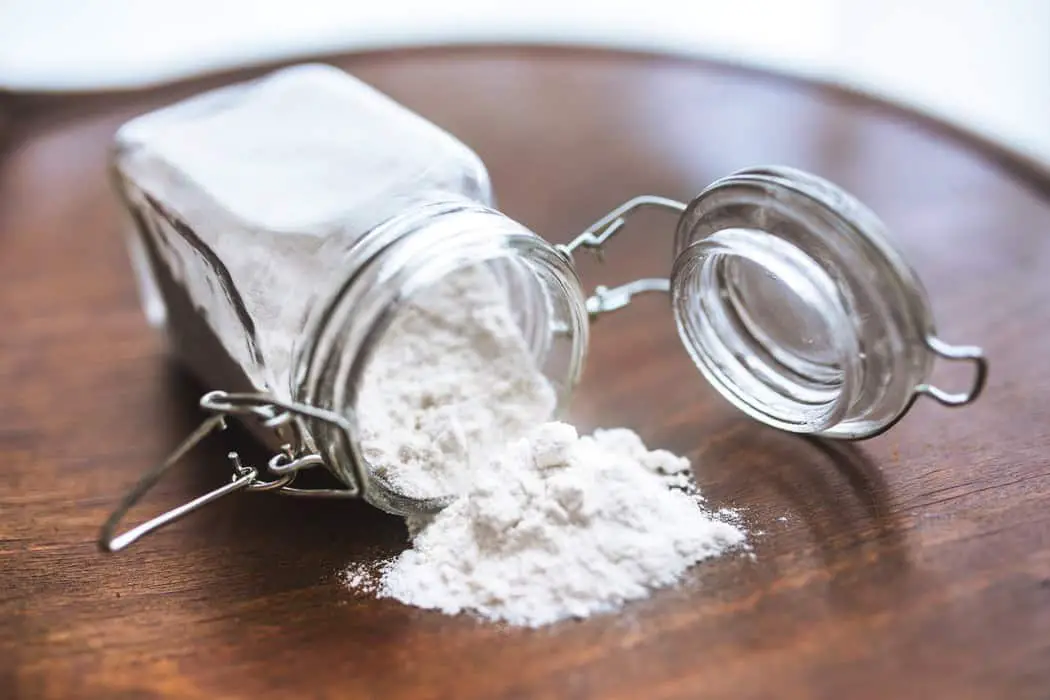One of the most challenging parts of sticking to a keto diet is balancing sugar intake. Sugar is in almost every product that comes prepackaged, and it’s full of carbohydrates, making it very dangerous for those trying to maintain a state of ketosis.
So how does one successfully avoid sugar while sticking to the keto diet? After all, it’s practically everywhere.
The answer lies with keto-friendly sweeteners. There are a plethora of different types of them available today, and they all come with different benefits and side effects.
Not all of them however are purely keto-friendly, so it’s important to know what you’re up against when deciding on which one to go with. One of the most common sugar substitutes that you’ll find in packaged goods is “maltodextrin”.
What Is Maltodextrin?
Maltodextrin is characterized as a type of sweetener that is commonly found on food labels, similar to sucralose or aspartame.
Like most artificial sweeteners, the complex names that are used on food labels can sometimes be confusing, which is why I’ve decided to lay all the maltodextrin facts out in this article.
Most of the time, maltodextrin comes in the state of a white powder, and it can be derived from corn, wheat, rice, or potato starch. While the foundation of it is from natural products, it is one of the most processed artificial sweeteners used in food.
This ‘processing’ takes place by cooking down the starches and other contributing ingredients, and then adding in enzymes or acids in order to break the materials even further down. The end result should appear as a water-soluble white powder.
A good way to think of maltodextrin’s processing is to compare to to corn syrup, because they both undergo a process known as ‘hydrolysis‘ to be made.
People who struggle with celiac disease may want to be wary of maltodextrin, because of its starch base, but unless the product using it explicitly contains wheat, it is generally safe for them and everyone.
Unlike corn syrup and other types of sugar additives, maltodextrin is made from 20% or less sugar, which is why it is so frequently used as a sugar substitute. Because it has undergone hydrolysis and comes from a starch base, it is also used as a way to thicken food products such as canned fruit, nutrition bars, yogurts and puddings, and powdered drinks.
Other common foods with maltodextrin can include:
- meat substitutes (vegetarian and vegan food options)
- baked goods
- salad dressings
- pasta, cooked cereals, and rice
- frozen meals
- soups and canned vegetables
- sugars and sweets
- energy and sports drinks
- salad dressings
Maltodextrin is also particularly high on the glycemic index sclae (GI scale), which means that it can cause a spike in your blood sugar levels. This is normal for some types of sugar substitutes, and it is still safe to consume in very small amounts, but those who struggle with diabetes should be extra careful.
From here, I’ll get a little deeper into the health benefits and hazards of using maltodextrin, especially for those working to follow a ketogenic diet.
Benefits of Maltodextrin
Maltodextrin as an additive is a cheap and very effective food product that can help to improve the texture, taste, and overall shelf life of a lot of types of foods.
Additionally, a lot of athletes and people who want to gain muscle muscle mass will utilize products that include maltodextrin, because it is a powerful source of energy.
Other primary benefits of maltodextrin include:
-
Colorectal cancer prevention
There is some recent evidence that suggests that that maltodextrin’s fermentation in the intestines could actually behave as an agent that helps to prevent certain types of colorectal cancer.
A recent study discovered that Fibersol-2, which is a type of digestive-resistant maltodextrin, demonstrated some antitumor activity. This means that it helped to prevent tumor growth without any clear indicators of toxic or dangerous side effects.
-
Digestion help
A relatively new study that was published in the European Journal of Nutrition discovered that digestion-resistant maltodextrin actually yielded positive effects on participants’ overall quality of digestion. Specifically, it helped improve intestinal functions like colonic transit time and stool consistency volume.
-
Chronic hypoglycemia treatment
Some people who struggle with chronic hypoglycemia actually regularly take maltodextrin as part of their regular treatment for their episodes of low blood sugar.
Because maltodextrin results in a faster increase in blood sugar, eating it is a very effective treatment for people who struggle to maintain normal blood glucose levels.
-
Exercise benefits
Because maltodextrin is technically characterized as a fast-digesting carbohydrate, it is frequently used in sports drinks and snacks for high intensity athletes. For bodybuilders and other athletes trying to actually gain weight and body mass, maltodextrin can be an excellent source of quick calories for during or for after a workout.
Keeping this in mind, it’s clear to see why it might pose some problems with the keto diet. Next I’ll explore some prominent side effects of maltodextrin.
Side Effects of Maltodextrin
The dangers of maltodextrin, even outside of a perspective of keto, unfortunately outweigh it’s benefits. These include:
- Spikes in blood sugar
As I mentioned above, maltodextrin has been known to cause spikes in your blood sugar because of its high glycemic index. While this proves to be a good thing for those with chronic hypoglycemia, Maltodextrin can be particularly dangerous for people who struggle with diabetes or insulin resistance.
- Suppresses growth of natural probiotics
Recent studies have revealed that maltodextrin is actually bad for the overall health of your gut because it can alter the composition of gut bacteria, which play a role in making your body more susceptible to disease.
This alteration of gut bacteria can also inhibit the growth of healthy probiotics that are found within the digestive system. This not only makes it harder for your body to function properly, but it also increases your risk of contracting some types of autoimmune disorders.
- May cause allergic reactions
Along with related gastrointestinal issues, it has also been shown to cause significant allergic reactions in the form of skin irritations, rashes, cramping and bloating. Those who generally suffer from common types of food allergies should try to stay away from products containing maltodextrin when possible.
- Potential correlation with Crohn’s disease
Maltodextrin is also known as a polysaccharide, and according to researchers, the rising consumption of polysaccharides (primarily in American diets) is actually heavily correlated with an increased risk of developing Crohn’s disease.
Crohn’s disease is a chronic inflammatory bowel disease that results in redness, pain, and swelling along the gastrointestinal tract.
Is Maltodextrin Keto-Friendly?

When it comes to sweets on keto, keeping an eye on the nutritional value, carbohydrate count, and calorie count is always important. Unfortunately, maltodextrin just doesn’t cut it for me.
It’s important to know that it is okay in moderation, a bite of food that is sweetened or thickened by maltodextrin certainly won’t take you out of ketosis, but I absolutely wouldn’t rely on it as a sweetener when preparing foods, or when purchasing prepackaged foods on the go.
If you’re struggling with chronic hypoglycemia, it can be a great tool to ease those symptoms, and I wouldn’t want to discourage you from using it to manage those symptoms. But ultimately, that’s a conversation that you should have with your doctor.
Because of maltodextrin’s high sugar content and glycemic index value, it’s actually just as likely to contribute to weight gain as ordinary sugar, if it is consumed in high quantities over long periods of time.
When people come to me looking for sugar substitute advice, I’m much more inclined to go with more keto-friendly options like monk fruit, stevia, and erythritol in order to satisfy sweet cravings without risking their state of ketosis.
If you’re looking for more keto-friendly versions of non-sugar sweeteners, I’ve broken down how maltodextrin stacks up to other popular substitutes below.
Maltodextrin vs Other Sweeteners
Monk Fruit
Monk Fruit, or luo han guo, is a natural fruit that is very low calorie and low carbohydrate on its own. When it’s concentrated in the form of an extract powder or syrup, it’s one of the most keto-friendly sweeteners available.
As a sugar substitute, it has literally no affect on your blood glucose levels, and is roughly 100-250 times sweeter than sugar, making a little go a long way when it comes to baking and adding it into certain foods and drinks.
It also comes with a lot more health benefits than risks, as it’s been proven to be used to treat inflammation, lower the risk of diabetes, fight off infection, and even relieve some symptoms of allergies.
Allulose
Like monk fruit, allulose also has a glycemic index of zero, making it a much better sugar substitute option that’s also keto-friendly.
Allulose is made from a monosaccharide that is found in small amounts in specific types of fruits and wheat.
While allulose isn’t zero carb or zero calorie, the numbers are still pretty low – clocking it an about 0-5 grams of carbs and 20 to 40 calories per 100 grams.
The benefits of allulose include decreased blood sugar levels, and additional help for those experiencing chronic hypoglycemia. When compared to maltodextrin for chronic hypoglycemia, allulose is definitely a safer winner, because of its low sugar content.
Erythritol
Erythritol is characterized as a sugar-alcohol, which is frequently found in different types of fruits and vegetables. Like allulose and monk fruit extract, it also has a glycemic index value of zero. This means that it definitely doesn’t cause any blood sugar spikes, unlike maltodextrin.
Also like allulose, it has about 5 grams of carbs and 20 calories per 100 gram servings.
However, it does come with drawbacks. Erythritol has been linked to causing stomach discomfort in large quantities, so it should still be used in moderation when it comes to the keto diet.
Stevia
Stevia is known as a naturally occurring herb that contains zero calories. Even better, there are no recorded negative health side effects from consuming stevia, making it one of the most keto-friendly options out of all sugar substitutes.
While it is technically void of any nutritional value, some important benefits of stevia include the fact that it has been connected to actually reducing blood pressure levels, and that it might even help to fight off diabetes.
Xylitol
While xylitol does have a higher glycemic index value of around 13, it is still much better than maltodextrin or table sugar as an alternative. Xylitol is another sugar alcohol commonly found in vegetables and fruits, and it’s sweetness is pretty comparable to that of sugar, which is why it’s often used in cooking and baking.
While it’s still technically keto-friendly, xylitol should be used as sparingly as possible, because it clocks in at roughly 60 grams of carbohydrates and 240 calories per 100 gram serving.
Maltitol
Maltitol, another sugar alcohol is a common substitute that is used in a lot of foods. While maltitol does have far fewer calories than table sugar, it has a pretty high glycemic index value. This means that it can increase the blood sugar level for those eating it, which isn’t good for the keto diet.
Additionally because it’s technically classified as a carb, it’s also not keto-friendly.
Aspartame
Aspartame is a very popular sweetener, but I’d have to say that it comes with the most negative side effects out of all of them. Aspartame is found in a variety of popular products like diet sodas, sugar-free ice cream, and gum.
Unfortunately, the biggest side effects include: seizures, headaches, depression, dizziness, and weight gain, which is obviously counterproductive to the keto diet in general.
Sucralose
Sucralose is generally free of carbs and has a very low glycemic index, but it is fairly artificial, so you may want to look for more natural alternatives when deciding on a sweetener.
While sucralose is generally keto-friendly, the brand that it comes with is very important, because certain products can still contain less keto-friendly additives like dextrose and maltodextrin.
Yacon Syrup
Yacon syrup is made out of the roots of the yacon plant, which is a tuber that is widely grown in South America.
It contains simple sugars including sucrose, fructose and glucose. Because your body isn’t able to digest a large portion of yacon syrup, it contains roughly one-third of the calories of regular sugar, and ranks at a lower glycemic index than sugar does.
Final Thoughts
At the end of this analysis, I’d say that you’re much better off going with a sugar alternative with a low glycemic index value in order to safely stick to a keto diet.
My favorites include monk fruit, sucralose, and stevia – but you should feel free to experiment and see which works best for your unique type of diet.
What’s most important is that you always keep an eye on the sugar and carbohydrate content when testing out these sweeteners.

